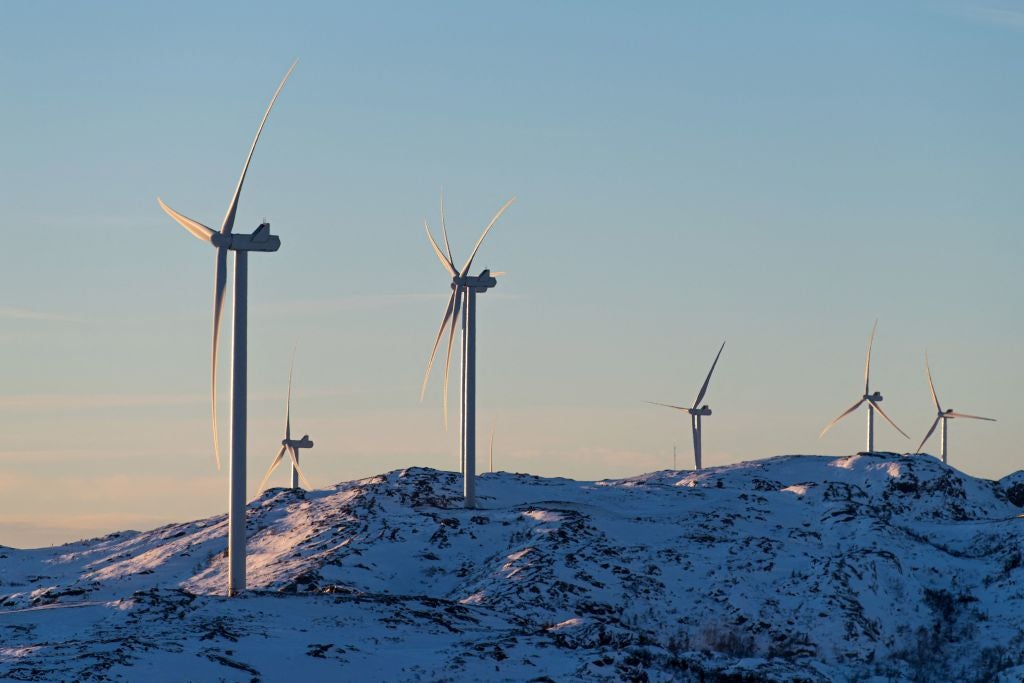The corporate renewable power purchase agreement (PPA) market in Europe grew by almost seven times between 2016 and 2021, but it looks like the energy crisis will make 2022 the first year it sees a slowdown, reveals data from the trade association WindEurope. In the first ten months of 2022, 3,491MW of corporate renewable PPA deals were signed in Europe, compared with more than 8,000MW for the whole of 2021.
Despite the easing off in growth, the European market is still on track to comfortably overtake the total PPA deal capacity for 2020, which was 3,568MW.

Discover B2B Marketing That Performs
Combine business intelligence and editorial excellence to reach engaged professionals across 36 leading media platforms.

The impact of geopolitical tensions, and resulting high energy prices and inflation, has led to a rise in the prices at which suppliers are offering PPAs. European PPA offer prices were up 10–15% in the first quarter of 2022, according to a report by renewable energy platform Zeigo and market analyst S&P Global Platts. LevelTen Energy reports a similar price rise for the second quarter, with European P25 solar and wind prices – aggregated from the lowest quarter of solar and wind offers based on data from LevelTen’s PPA marketplace – increasing by 16% to €66.07 per megawatt-hour (MWh). Prices are up nearly 50% year-on-year.
“In the simplest terms, PPA prices have been rising for one year because supply cannot keep up with demand,” said Flemming Sørensen, vice-president for Europe at LevelTen Energy, in a press release in July. “Developers continue to struggle to build new solar and wind projects, which are sorely needed, due to tough permitting and interconnection challenges and the rising cost of inputs and labour.
“Furthermore, developers now have more options to market and finance their existing projects outside of corporate PPAs, which also limits available supply,” he added. High wholesale electricity prices mean renewable project developers now have an incentive to sell to the wholesale market, contributing to the PPA price rise.
Adding to the uncertainty are the EU's emergency energy market interventions in response to high prices, according to the RE-Source Platform, a forum for corporate renewable energy sourcing in Europe. EU leaders have signed off on a €180/MWh electricity price cap, but there are worries national and even technology-specific price caps may undermine this.

US Tariffs are shifting - will you react or anticipate?
Don’t let policy changes catch you off guard. Stay proactive with real-time data and expert analysis.
By GlobalData“The revenue cap of €180/MWh should apply EU-wide to provide certainty to businesses that purchase or produce renewable energy," said the RE-Source Platform in a statement on 27 September. "Divergent revenue cap levels around Europe would create significant business uncertainty for all parties involved in long-term energy contracts."
The current volatility in energy prices means it will be more difficult for buyers and sellers to make long-term agreements. Since they typically agree on a set price for 10–15 years to come, buyers risk losing money if market prices go down over time. Conversely, sellers risk losing money if wholesale market prices stay high for longer or go up further.
The average PPA term has already decreased from 11.6 years in Q4 2021 to 9.5 years in Q1 2022, according to the Zeigo report. At the same time, if the market is expected to be volatile for the long-term, a PPA is attractive for buyers due to the security set prices can offer.
[Keep up with Energy Monitor: Subscribe to our weekly newsletter]
Despite the energy crisis disruptions, it seems inevitable the corporate renewable PPA market will continue to grow in the coming years, sticking to the trend it set before the energy crisis. Both for energy security and the race to net zero, more renewables are needed. Corporate PPAs remain attractive for companies looking to shift their energy mix and commit to renewable targets, says Sørensen.
“Greenwashing is a big concern for many offtakers who are focused on hitting their renewable energy goals," he notes. "PPAs provide the highest amount of benefit to the environment because they drive more renewable generation capacity. Corporations and other offtakers that enter into PPAs get to tell a powerful impact story.”
Editor's note: This story is part of a series of articles Energy Monitor is producing as part of a media partnership with the RE-Source Platform (WindEurope, SolarPower Europe, RE100 and wbcsd) for RE-Source 2022, an annual gathering of European renewable energy buyers and suppliers, in Amsterdam, the Netherlands, on 6 and 7 October.





